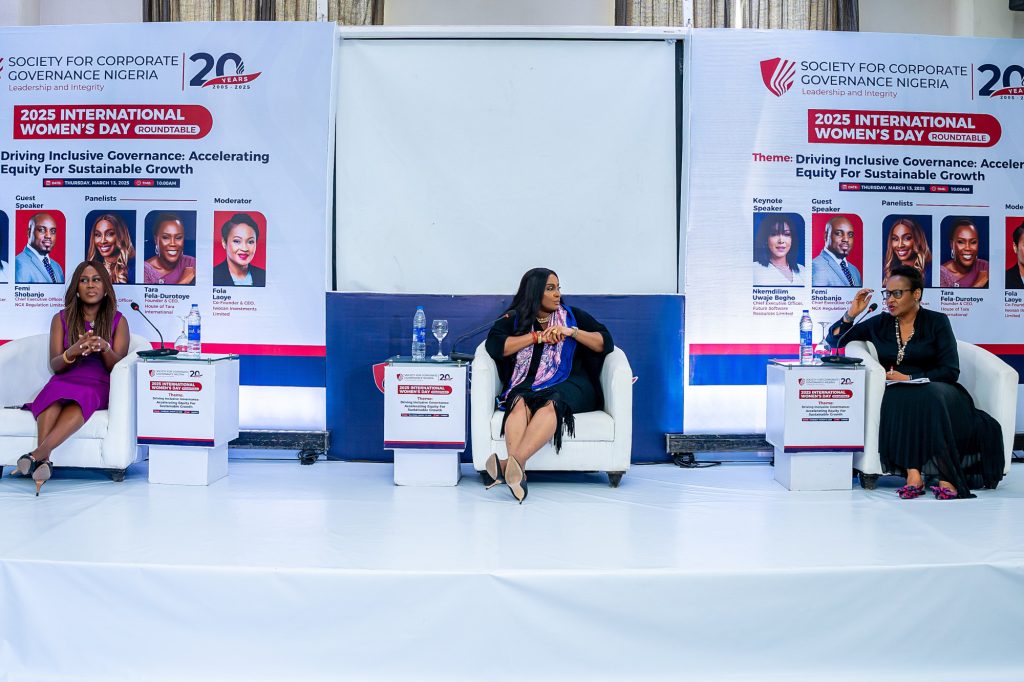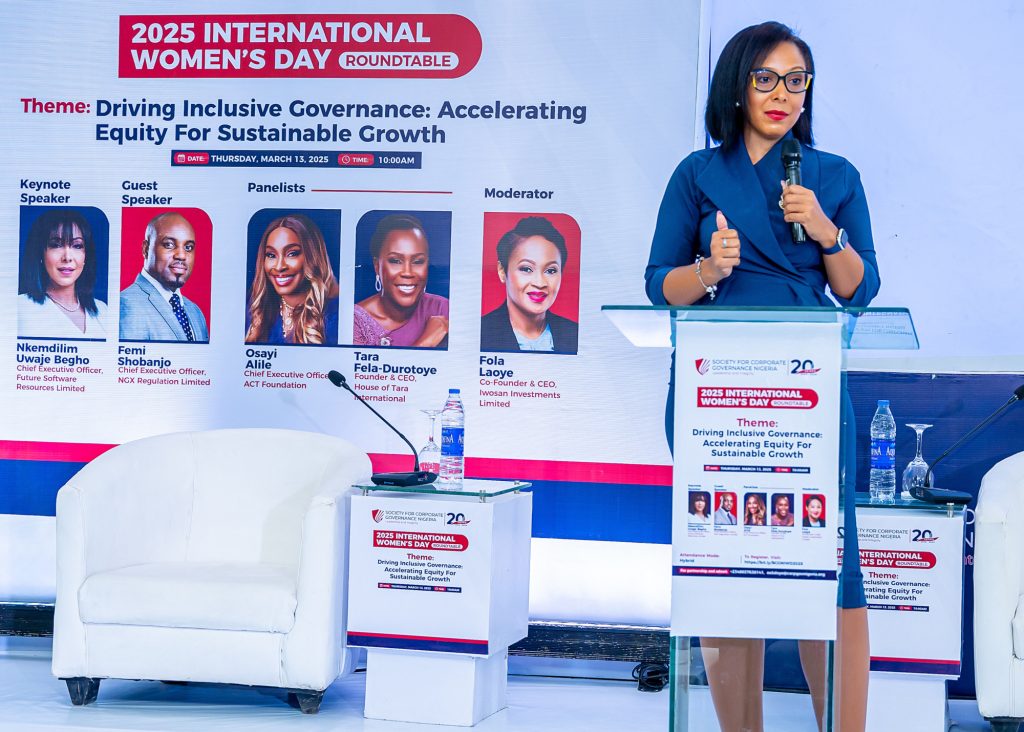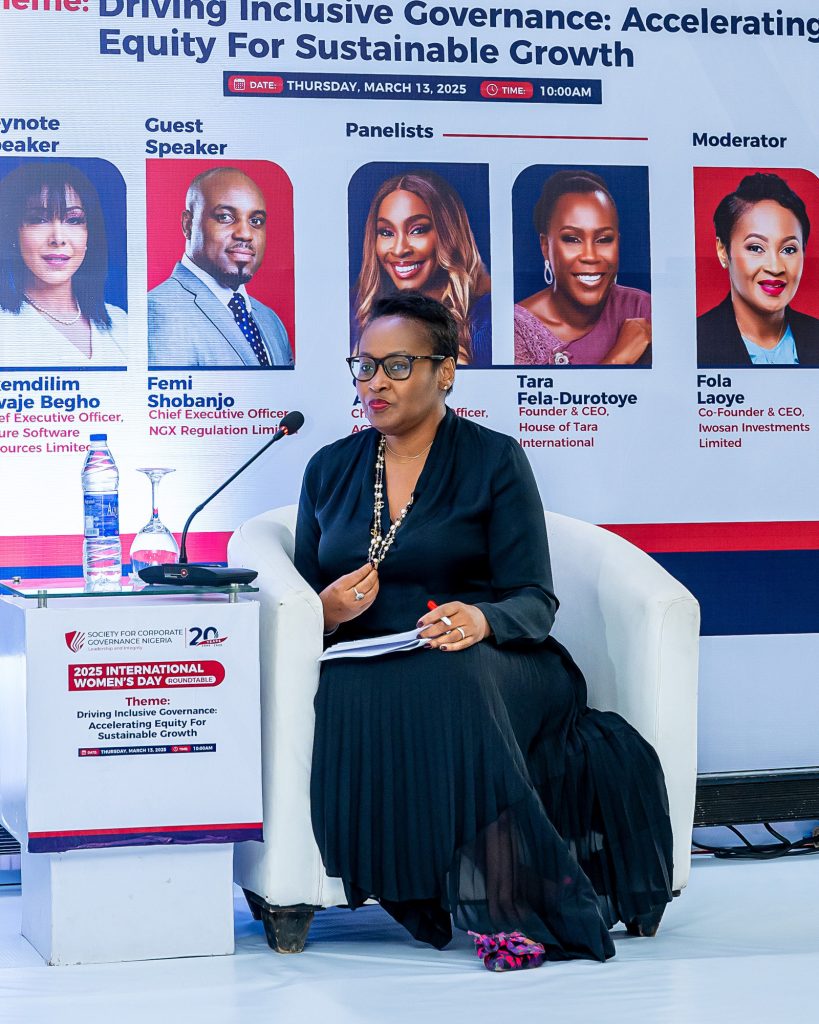The conversation around diversity, equity, and inclusion (DEI) has primarily focused on representation at the executive level. While it is essential, it is not enough. True equity goes beyond appointing diverse leaders to create systemic change that runs through every level of an organisation.
For corporate governance to be truly impactful, equity must be embedded in policies, from decision-making processes to organisational culture. As we celebrate International Women’s Day 2024 all of March, let’s talk about this with a posture to execute immediately. We have talked about these things for a long time, but we must now accelerate action! This year’s IWD theme is Accelerate Action, so let’s discuss how organisations can drive meaningful change by advancing equity for greater impact, not just for leadership but throughout its entire structure.
A Systemic Approach to Driving Equity
Equity is often mistaken for diversity, but the two are not the same. Diversity refers to the presence of different demographic groups within an organisation, while equity ensures that every individual has fair access to opportunities, resources, and decision-making power. This is why simply increasing varying leadership representation does not automatically create an equitable workplace. Instead, organisations must build structures that dismantle barriers and enable sustainable inclusion at all levels.
There is currently a concerted effort to minimise the value of creating equity in the workplace. Over the years, we’ve explored the value of Diversity, Equity, and Inclusion in business – you can read one of our previous blog posts to learn more.

Furthermore, it is important to note that executives do play a pivotal role in this transformation. This influence goes beyond board appointments to shaping corporate policies, redefining decision-making frameworks, and building a culture that prioritises fairness and accountability. So, how can organisations move from representation to systemic equity? Here are some of the best practices that we recommend.
-
Equity-Centric Policies
Policies are the backbone of any organisation. They define how employees are recruited, compensated, promoted, and supported. Leaders must ensure that policies are not only inclusive in wording but also in practice. Key steps include:
- Adopting structured hiring processes that minimise bias, such as blind recruitment and diverse hiring panels. Establish clear, objective criteria for new hires and promotions to prevent subjective decision-making that favours certain groups.
- Conducting regular pay equity audits to identify and correct wage gaps. Ensure that benefits, such as parental leave and flexible work arrangements, cater to a diverse workforce.
- Extending equity beyond employees by supporting diverse suppliers and ensuring that procurement policies are also fair and inclusive.

- A DEI-Aligned Business Strategy
Equity should not be treated as a separate initiative. Instead, it must be fully integrated into the company’s business strategy. When DEI is embedded into strategic priorities, organisations experience greater innovation, higher employee engagement, and improved financial performance. To create such a strategy, you need to:
- Link executive compensation to equity goals, ensuring that leaders have a vested interest in driving change.
- Embed DEI metrics into performance reviews for managers and executives, reinforcing accountability at all levels.
- Align product development and marketing strategies with diverse customer needs, ensuring that the business remains relevant and inclusive.
- The creation of employee resource groups has also proven extremely effective in gaining stakeholder buy-in, especially among employees.

- Inclusive Decision-Making Structures
Corporate decisions impact employees, customers, and all other stakeholders. Yet, many decision-making processes remain exclusive, determined by a select few. Equity-driven governance requires:
- Key business decisions involve individuals from diverse backgrounds and expertise to bring varied perspectives to the table.
- Establishment of Employee Resource Groups (ERGs) and governance councils to provide under-represented employees with a voice in helping shape company policies and practices.
- Making corporate decisions and rationales more transparent to employees, building trust and inclusivity.

- Data-driven and Technology-Enabled Equity
Data-driven decision-making is essential for achieving and maintaining equity. To make informed choices, governance leaders can:
- Use AI and analytics to identify inequities in hiring, promotions, and compensation.
- Establish real-time dashboards that track DEI progress to help monitor impact and adjust strategies accordingly.
- Conduct regular employee sentiment surveys to provide valuable insights into workplace inclusivity, allowing organisations to address concerns proactively.

- A Culture of Accountability and Belonging
Culture is the most challenging aspect of change in any organisation. This is probably why it is the most influential. An organisation can have inclusive policies on paper but still struggle with an exclusionary workplace culture. Leaders must:
- Actively demonstrate inclusive behaviour, such as seeking diverse input, addressing biases, and advocating for under-represented voices.
- Conduct frequent equity assessments to measure progress and identify areas for improvement. Employee feedback should be actively sought and acted upon.
- Go beyond generic DEI workshops to immersive, role-specific training that helps leaders and employees recognise and address unconscious biases in decision-making.

- Partnerships for Greater Impact
Equity should not be the crusade of an organisation against its structure. Companies also have a responsibility to drive broader societal change. To help achieve this, organisations need to:
- Collaborate with industry peers, government agencies, and community organisations to create more inclusive opportunities.
- Partner with universities and training programs to establish strong pipelines for under-represented talent, expand access to career opportunities, and foster a more diverse and skilled workforce.
- Support policies that promote workplace equity at both national and industry levels.
- Engaging in corporate social responsibility (CSR) initiatives that address systemic inequities.
Driving Equity for Tangible and Lasting Impact: Insights from SCGN’s 2025 IWD Roundtable
For us at the Society, we don’t just write about Diversity, Equity, and Inclusion, we consistently and actively advocate for inclusive leadership and equitable business practices. This year’s Roundtable for International Women’s Day, was themed “Driving Inclusive Governance: Accelerating Equity for Sustainable Growth,” The event brought together industry leaders to discuss practical solutions for improving representation and access to leadership.

To kick off the event, our guest speaker, Mr. Femi Shobanjo, CEO of NGX Regulation Company, emphasised that women must advocate for one another while organisations create the right structures to support growth. He outlined key steps such as enforcing clear policies, leveraging technology to reduce bias, and ensuring collaboration between corporate and government bodies.
Our keynote speaker, Mrs. Nkemdilim Uwaje Begho, CEO of Future Software Resources Limited, addressed key challenges preventing women from securing board positions, such as limited opportunities, slow leadership turnover, and lack of transparency in recruitment. She stressed the importance of structured mentorship programmes, leadership training, and intentional board placement strategies to create real change.

During the panel conversation, Mrs. Tara Fela-Durotoye highlighted that women often lack confidence, which can lead to them being perceived as incompetent. She emphasised that confidence is a crucial quality for women, especially in leadership. She also noted that boards can help bridge this gap by creating more opportunities for women in leadership positions.
Additionally, Mrs. Osaye Alile spoke on the importance of collaboration, particularly with female leaders. She stressed the need to shift mindsets across generations, invest in leadership training and development, and encourage women to be more outspoken in professional spaces.

Beyond any doubts, the discussion showed that achieving equity requires continuous effort, not just symbolic gestures. Companies must integrate fair policies at every level, ensuring that leadership is not only diverse but also truly representative of the workforce. The time for action is now. So much was discussed at the conference, and If you are interested in the full conversations – you can watch the recap here.
On a Final Note..
Equity in governance is not just about filling quotas, but about creating a culture where everyone has the opportunity to thrive. Now is the time for organisations to turn commitments into measurable progress, ensuring a truly inclusive corporate landscape.
